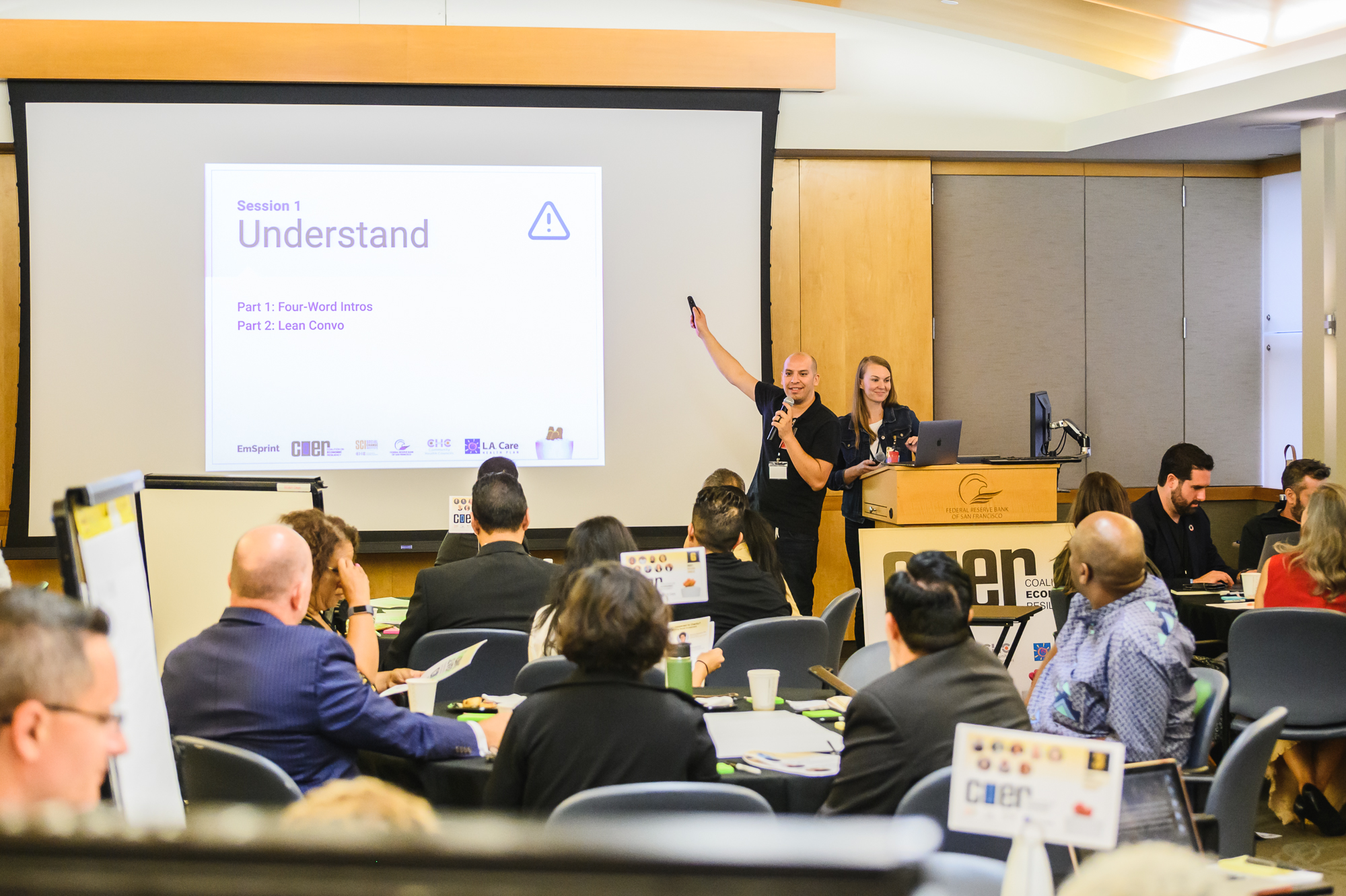
Opening presentation to kick-off the workshop
Leading 80 cross-industry executives in a Design Thinking workshop to uncover solutions to economic resiliency for low-income communities.
Community Health Councils
Community Health Councils is a non-profit organization working to create an equitable world by co-developing transformational social equity models and systems to serve BIPOC communities and help each person thrive.
Role
Design Thinking Facilitator
Deliverables
Workshop Design
Facilitation Guide
Summary
We facilitated a 3-part workshop for Community Health Councils, bringing together 80 cross-industry executives to tackle issues related to economic resilience in underserved communities. Our approach enabled participants to quickly go from high-level complex problems to tangible steps in under three hours, resulting in each team identifying and prioritizing specific and actionable next steps. The workshop removed unnecessary conversations and biases, ensuring those with the most lived experience in the topic areas were heard and centered in the solution creation process. CoER has since held two additional convenings building on the foundation laid during this initial workshop to continue forward progress.
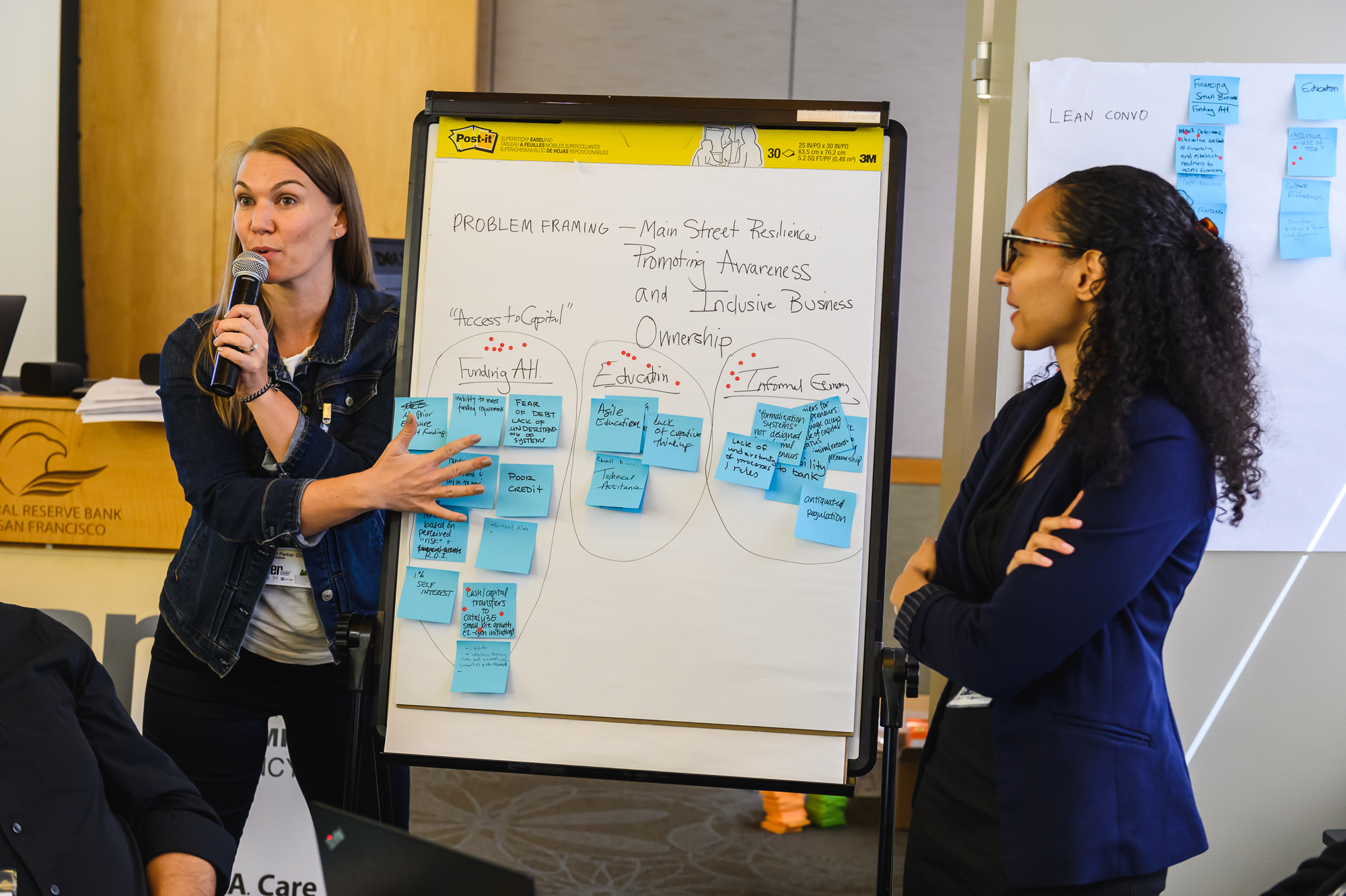
Partner & spouse describing the expected outcomes to the group
The Challenge
In 2019, The Social Change Institute at CHC was planning to launch the Coalition on Economic Resiliency (CoER). They wanted to bring together 80 cross-sector executives, innovators, and community leaders to tackle a variety of social issues relevant to building economic resilience in low-income communities. In addition to needing support with convening design and facilitation, CHC leadership identified their main challenge as achieving actionable outcomes. They shared that similar gatherings often included a large number of discussions and brainstorming activities that didn’t result in concrete actionable next steps, without which strategies and solutions did not end up moving forward.
Our Approach
We designed a 3-part workshop that focused specifically on enabling participants to go from high-level complex problems to specific action steps in under three hours.
We broke participants up into 10 teams of eight, with each team focused on a specific issue or challenge area related to economic resilience. In each of the three parts, teams worked through a series of timeboxed exercises, rapid ‘solo’ ideation, intentional discussions, and blind voting to help them quickly gain a shared understanding of the challenge, align on the greatest area for opportunity, and decide on the highest impact and most urgent solutions for which to create actions steps.
Before the convening, we did a dry-run of the workshop with seasoned designers and facilitators to get feedback on the specific exercises, the overall flow of the workshop and work out any logistical kinks.
"Maicol and Rachael's guidance, planning and facilitation were critical to our success."
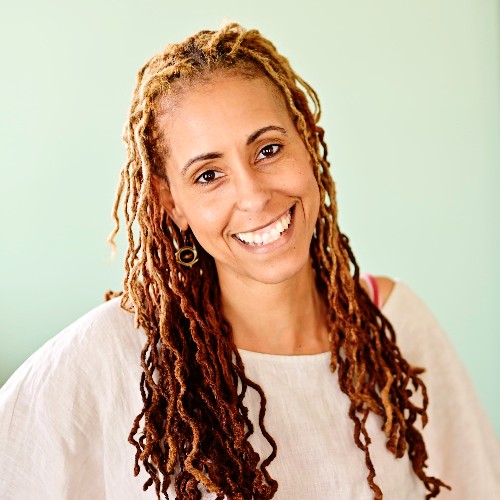
Michelle Burton
Chief Strategy Officer & Director, Social Change Institute
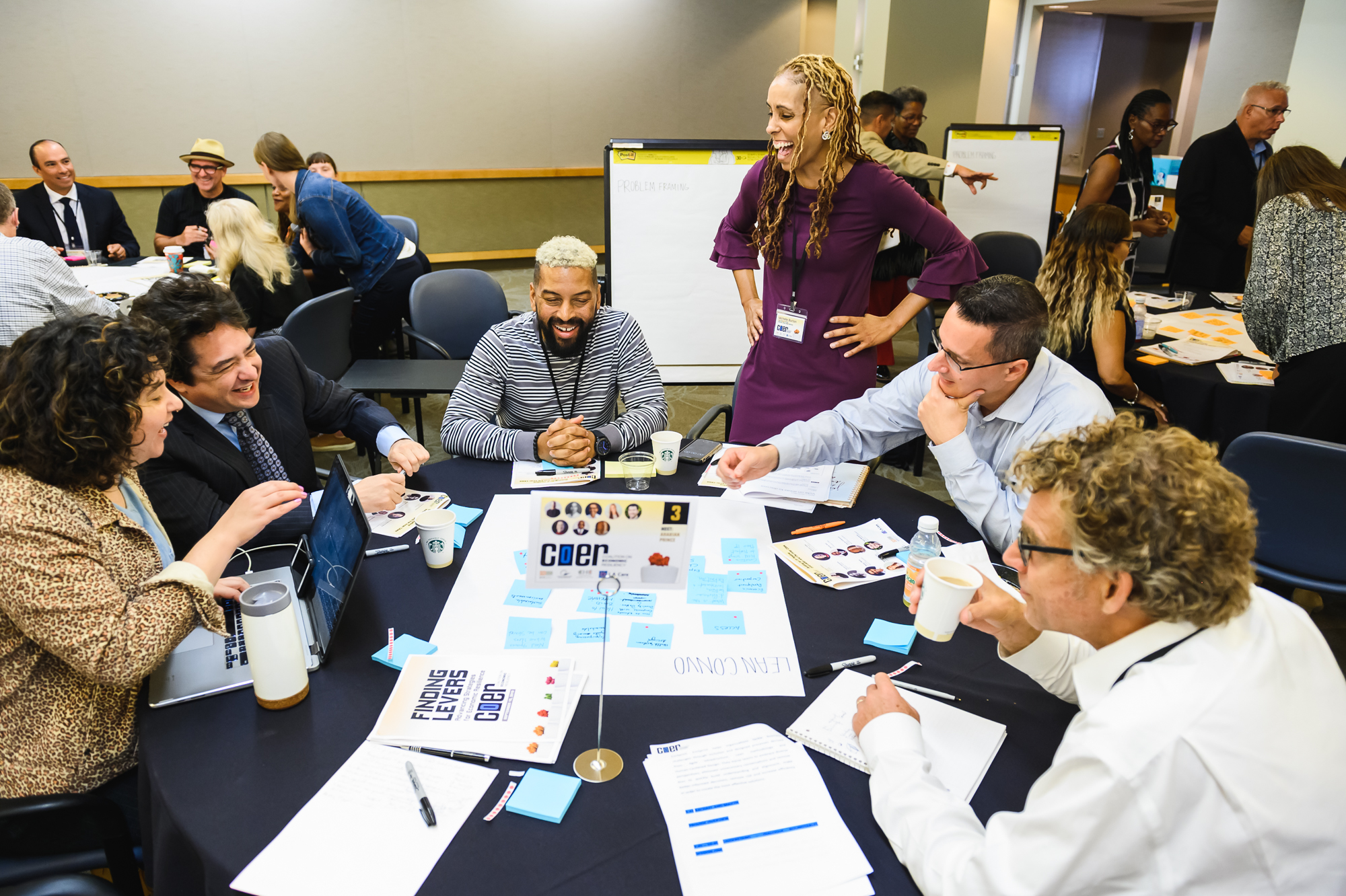
One of the teams enjoying themselves during the workshop
During the convening, our approach helped remove the unnecessary conversations and bias that typically takes place in collaborative work – this was especially important as this project brought together people from different sectors who had never worked together before and helped them align quickly and work efficiently. It also helped ensure those with the most lived experience in the topic areas were heard and centered in the solution creation process.
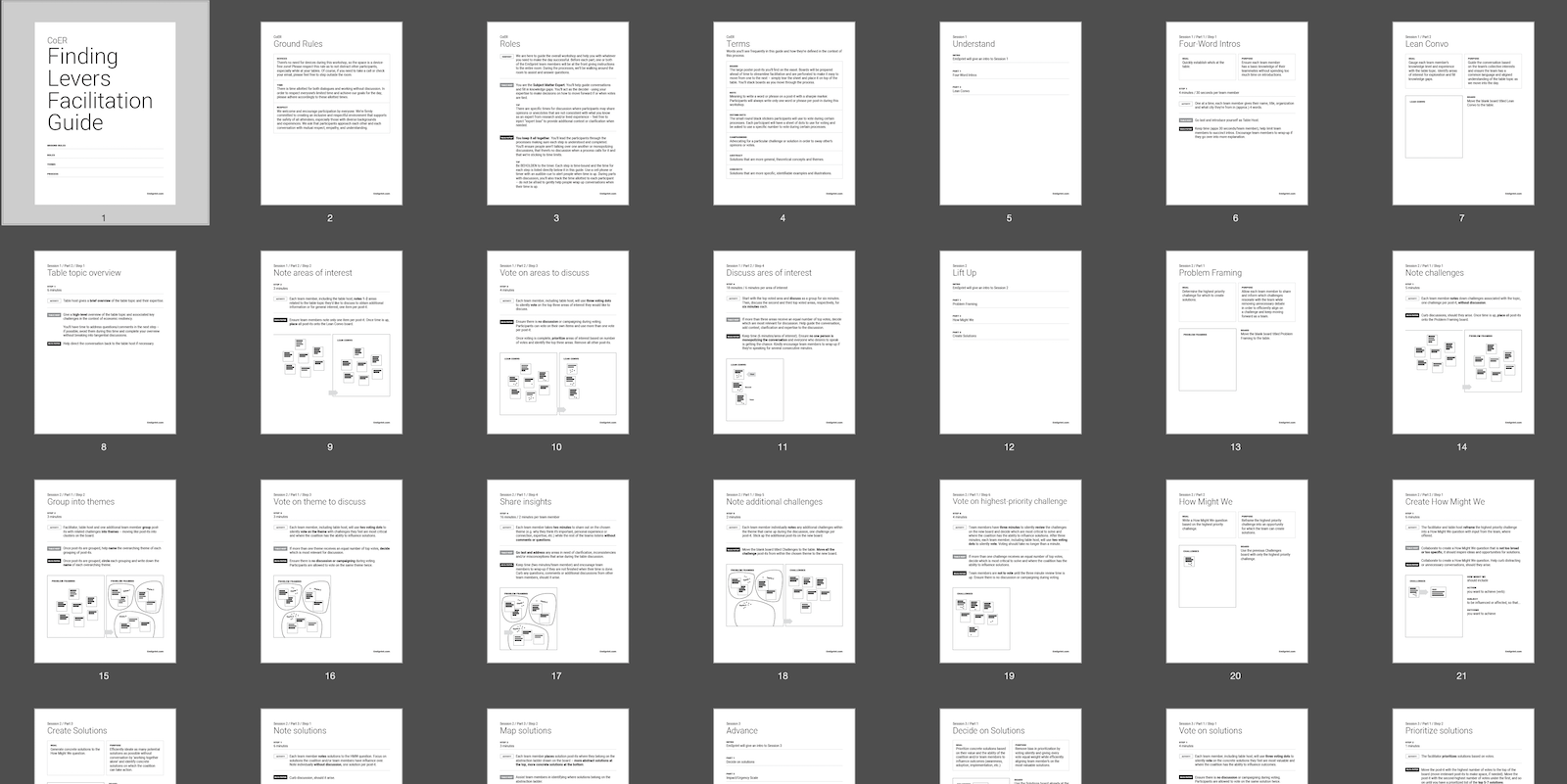
Facilitation guide provided to each co-facilitator in each team